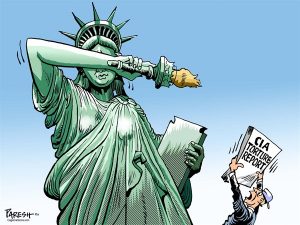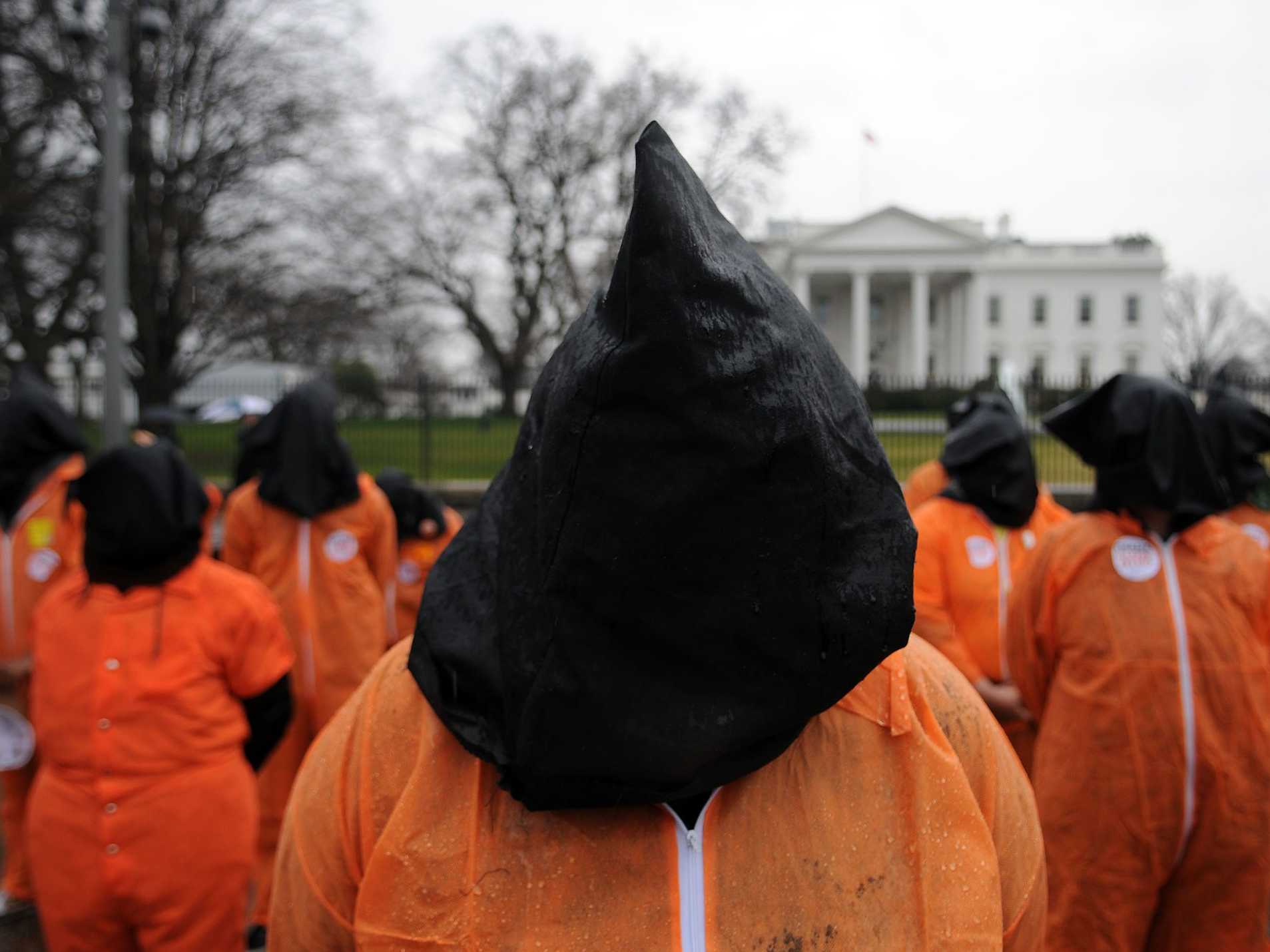By Bobby Wetherington

Ever since the Senate Intelligence Committee released its report on the use of Enhanced Interrogation Techniques, many arguments have been put forth supporting torture. One of the most convincing arguments was that citizens of a liberal democracy could make torture legal. The argument goes like this: if the issue of torturing enemy combatants was put to a free and fair vote in a liberal state, then torture could fit within the liberal framework. However, this argument opposes liberal political philosophy as well as the ideals of the Founding Fathers.
It is worth noting that liberalism has a different meaning outside of its American connotation of a center-left political philosophy. In most places outside of the United States, liberalism is quite simply a political philosophy which values liberty, equality, and natural rights. The most important aspect of liberalism is its emphasis on individual rights and natural law.
The first recognizable form of natural rights took shape in the writings of the 16th century philosopher Thomas Hobbes. Hobbes stated that all men were created equal in nature and no higher authority existed. Because no man or woman was superior to another, he insisted that all humans have the right to pursue their interests without obligations, moral or otherwise, to any other. In other words, everyone has absolute freedom.
Hobbes hated the idea of absolute freedom though. He famously stated that it made life “nasty, brutish, and short.” As a solution, he proposed the formation of a natural law out of each individual’s natural rights. From this idea we get a social contract where individuals surrender rights to a higher power in exchange for peace, order, and security. Hobbes’s inescapable social contract was to become the natural law.
Hobbes’s version of natural law led to the formation of what is known as legal positivism. The higher authority, a government or sovereign, could create whatever laws it liked and was not to be constrained by morality. Legal legitimacy came from the lawmaker, not the merits of the law itself. Under this definition of natural law torture is legally permissible. If this is America’s political philosophy, then we can justifiably surrender our rights to the government so that they may torture terrorists in order to protect us. Of course, this is not our political philosophy, and it is not the kind of political system our Founding Fathers intended for us to have.
The modern liberal definition of human or natural rights is derived from the works of John Locke, who, in turn, heavily influenced the American Founding Fathers. Locke’s philosophy asserts that natural rights arise out of a common natural law. Natural law is normative and establishes that there is a certain way that humans should treat others. Under normative law all men are equal in nature, similar to Hobbesian philosophy. The difference is that the Locke’s law establishes individual rights which cannot be violated whereas under Hobbes’s law the higher power may do whatever it likes.
Natural law extends to the government or state as well as citizens. Liberalism still implies a social contract, but it is not as extensive as it is in Hobbesian theory. Citizens surrender a degree of personal freedom to the state in return for protection and order, but the government is held accountable to a higher power, natural law. Thus the state is supposed to respect its citizens’ natural rights. There are only a few circumstances in which the natural rights of a person may be justifiably violated. One example is when a criminal is sent to prison for harming society.
Our Founding Fathers intended for the same natural rights, derived from natural law, to apply to everyone. No document better exhibits natural law than the Declaration of Independence. The language used in the Declaration is quite broad, applying just as much to foreigners as Americans. It is upon the liberal values of Locke and the Declaration on which our Constitution and country were later established.

The Declaration may not refer to “enemy combatants,” but it does clearly state that all men have a right to basic human dignity. Torture was used quite frequently in Europe during the Founders’ lifetimes. In France, for example, torture was used until 1780. When it was banned, Thomas Jefferson, the American envoy to France, wrote a letter praising the French King’s decision, calling it “unquestionably good.” Jefferson, along with several authors of the Constitution like Patrick Henry and George Mason, opposed the use of torture in any form.
When writing the Constitution the Founders were careful to ensure torture was made illegal by the Fifth Amendment. Usually we interpret the Fifth Amendment to mean people have a right to not incriminate themselves in court, but George Mason said that “…in those countries where torture is used, evidence was extorted from the criminal himself” and, thus, torture violated one of the basic guarantees of natural rights. As it reads, the Fifth Amendment outlaws the kind of torture used in Guantanamo Bay and at CIA black sites, as it forces detainees to incriminate themselves.
So, would the Founding Fathers consider EITS, as detailed in the Senate Intelligence report, to be a violation of human dignity? We now know that the federal government forced detainees to sleep in boxes, stand in the nude for days, crawl around wearing leashes, and suffer countless beatings and threats. The government also forced detainees to experience the sensation of drowning hundreds of times through the use of waterboarding. Perhaps the most dehumanizing technique used was rectal rehydration, where detainees were fed through the anus. Certainly EITS are similar enough in nature to 18th century torture techniques, like the rack and iron maiden, that the Founding Fathers would oppose them.
As Americans we value our natural rights of liberty and dignity, but we need to recognize that they do not just apply to us. As hard as it may be to respect our enemies, our political system is built upon the liberty and equality of all. In order to preserve it we must continue to follow the values ingrained in our history.


